December 17, 2007– January 11, 2008
A New Year brings a new Rainy Season…
In the week before Christmas we were watering and keeping the greenhouse house operating at full tilt. All of the revegetation sites received their weekly dosage of water, 1/3 of a gallon per tree.
In the greenhouse, fresh batches of soil were prepared with river sand, compost, dark dirt, and a bit of wood chips. Bottles were collected from around town and cut and cleaned. The new soil went into seed beds of Amarillo (collected from Orlando’s farm) and Guachapeli.
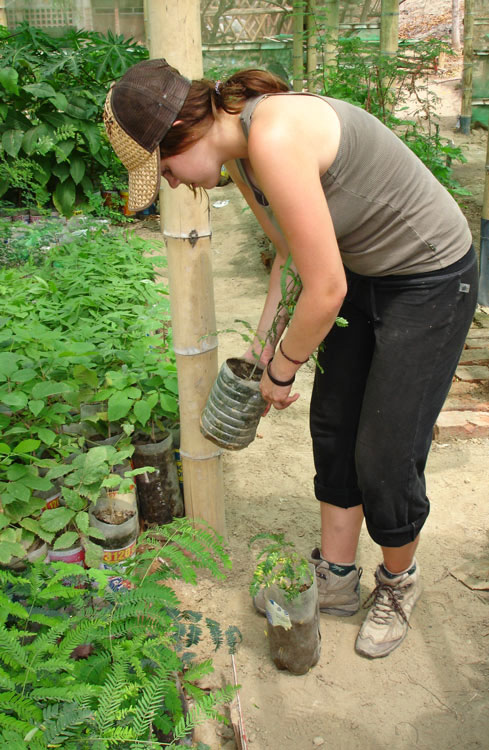
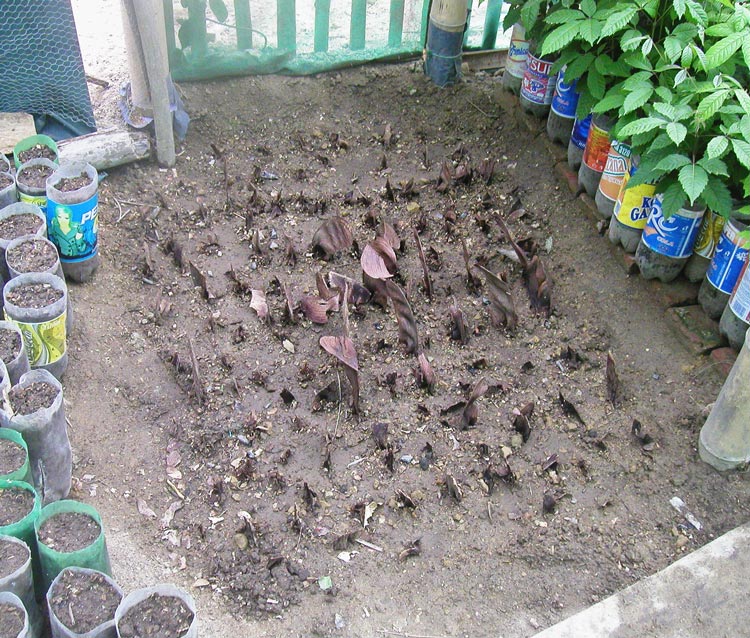
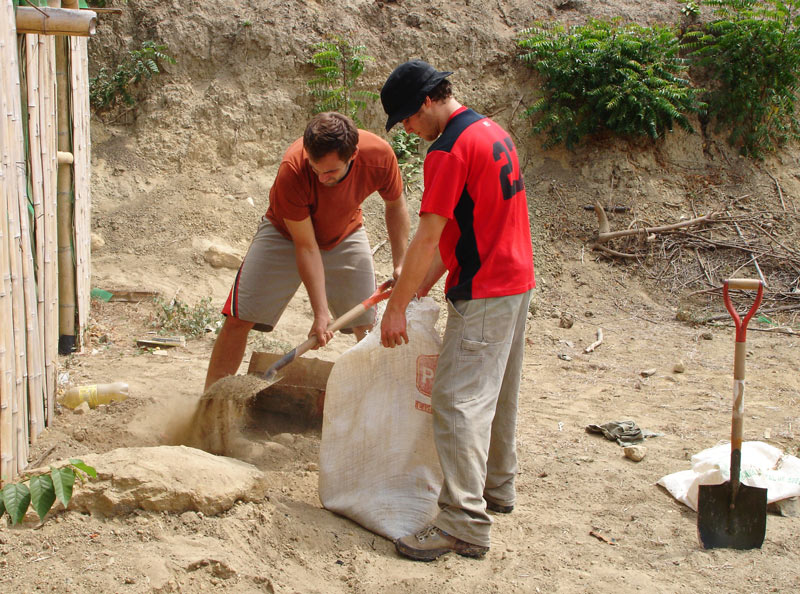
Baby Guachapeli, Bototillo and Balsamo were transplanted into 3-liter bottles.

Baby Guachapeli, Bototillo and Balsamo were transplanted into 3-liter bottles.
For Christmas Eve we hosted a large dinner at our house and spent the next day at the beach relaxing.
Three of the men in our house were invited to participate in the neighborhood events which involved loosely reenacting stories from the Bible. We got to be the three kings in the festivities.
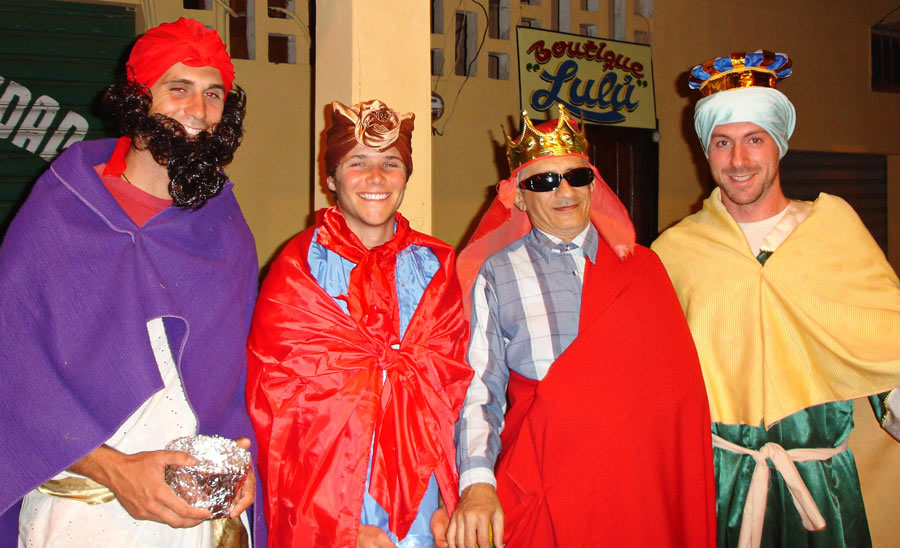
Christmas week, among the festivities, we watered the 2007 sites for what would be the last time. It is Planet Drum practice to water the trees that we plant for the first dry season that they have to endure to boost survival rates and help them get established. This is particularly important on land that has been completely denuded.
I did some more surveying of new revegetation sites for 2008 and volunteers began breaking trails at a couple of them.
The new site at the greenhouse was laid out and the first trails were cut through the brush.

At the new site at Ricardito’s farm (Bosque Encantado) the first of nearly 300 holes were dug and a batch of trees were transported from the greenhouse.
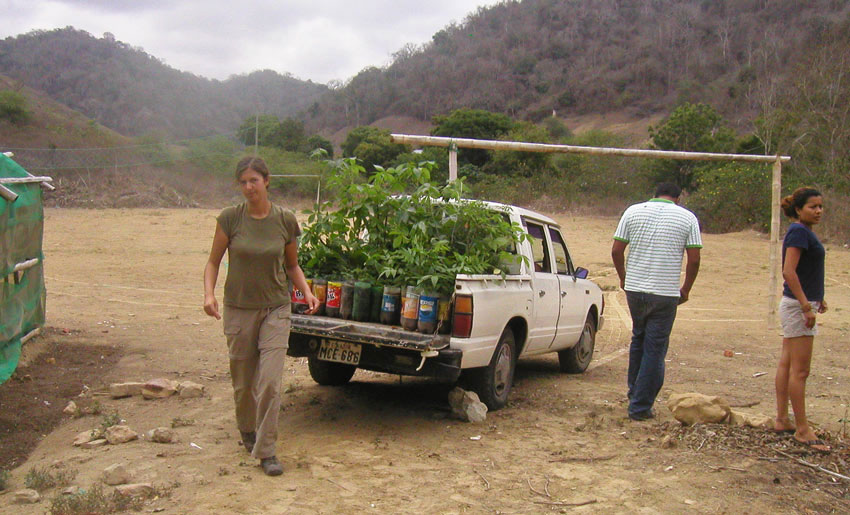
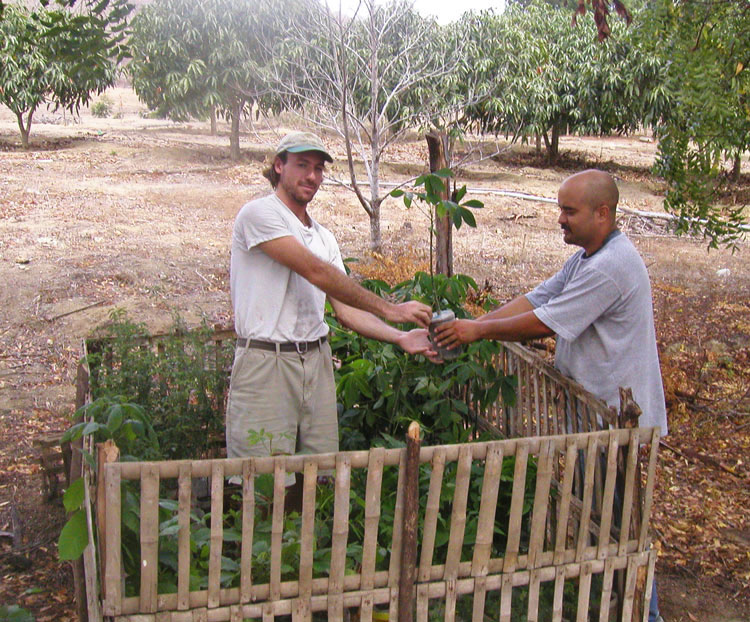
I took a ride out to the El Toro watershed with Don Pedro Otero to discuss the possibilities of starting revegetation on his land on the opposite side of the El Toro watershed from where we have worked in previous years. He is enthusiastic about the project and promises to work with us to secure a water source (tank) near to the site where we will plant. He will also contribute some fencing to ensure that cattle can’t get into the revegetated area.
The New Year marked the beginning of the rainy season. After a couple months of signs of a changing climate: warmer ocean currents, more intense sun, and hotter days, the rains began. Our work routine changed completely. Instead of maintaining the 2007 sites with weekly watering we shifted our efforts to preparing 2008 sites. Trails need to be cleared, holes need to be dug and trees need to be transported before planting can begin.
On Don Pepe’s land we have constructed a fence on the barren hillsides to prevent cows from entering the revegetation site. During two days over two hundred holes were dug there.

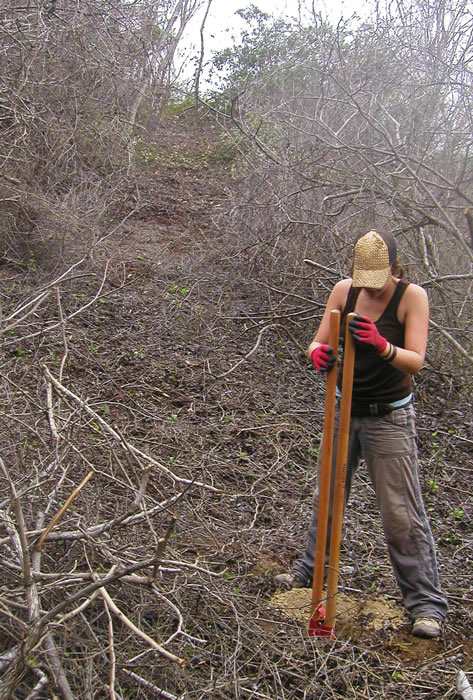
Nadine digging holes at the greenhouse site.
At other sites, such as the one on the hills behind the greenhouse, there is some existing vegetation and trails need to be cleared through the brush so that we can plant our trees. The same is done at the Nuevo Globo site, located in the same watershed as the Don Pepe sites. It occupies the entire face of a large hill and horizontal trails are cleared from top to bottom at 3-5 meter intervals. The trails make planting easier and will be necessary for when we have to water during the dry season. GPS coordinates are taken at the sites to be able to calculate areas and design maps.
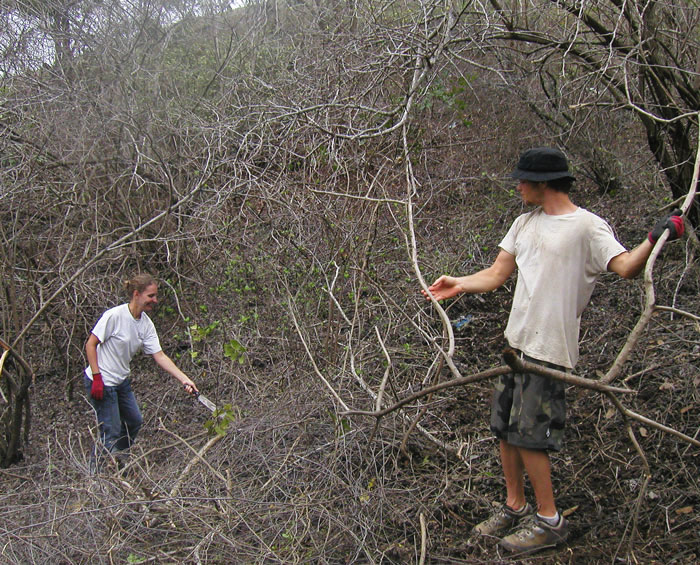
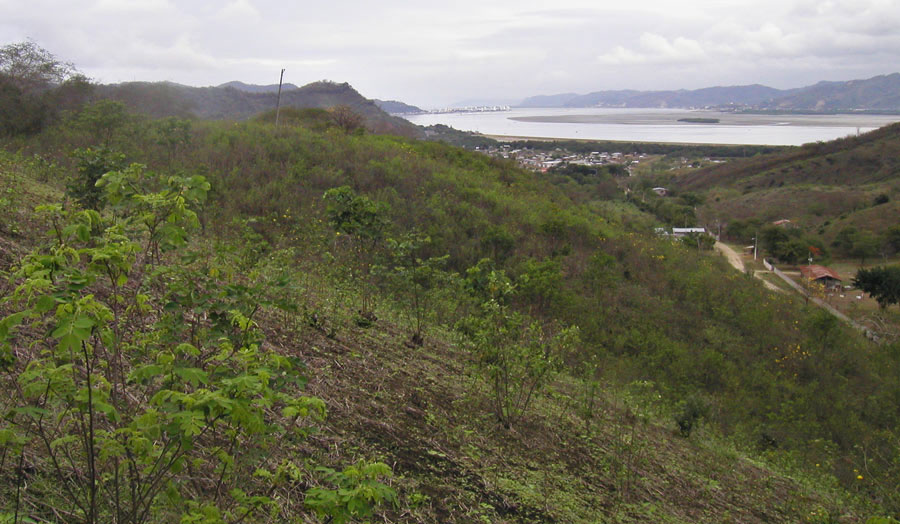
In the greenhouse, trees continue to germinate and we continue to prepare for transplanting.
My dad and sister came to Bahia to visit me and got involved in some bottle preparation while checking out the greenhouse.
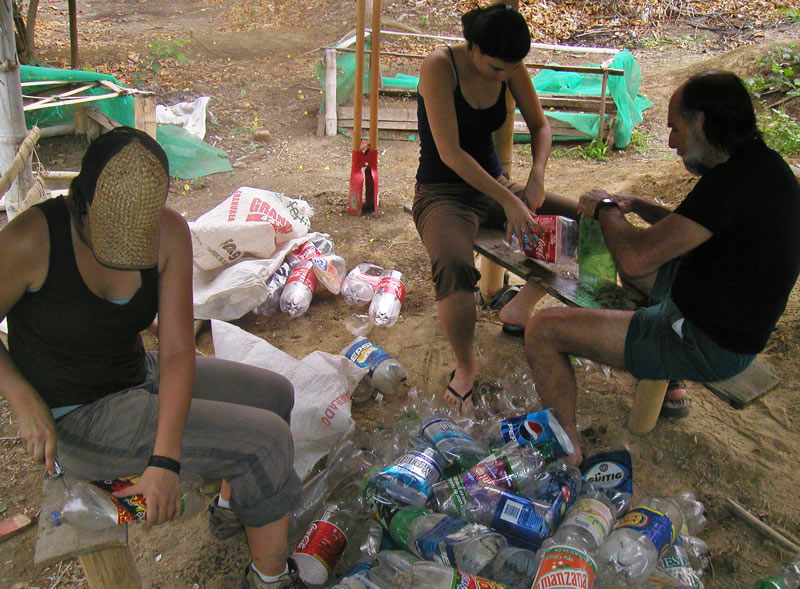
In a grueling day we loaded up trees from the greenhouse for transport to the site in El Toro.
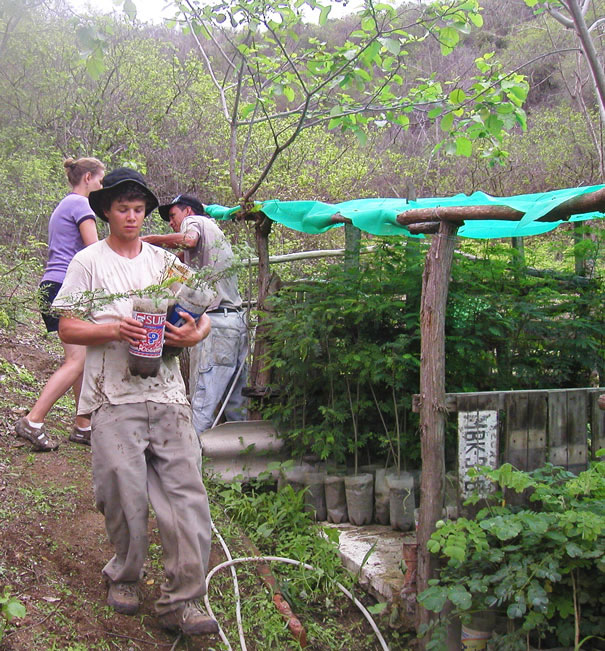
As we drove along the dried river bed of El Toro deep into the watershed it began to drizzle and the dusty road immediately turned to slick mud. Nearly sliding off the road with every turn, the truck loaded with what will hopefully some day be a new patch of dry tropical forest pushed onward. Finally arriving at the land we were faced with the task of hand-carrying the trees the rest of the way to the site. This required crossing the same dried up river bed.
Fortunately the drizzling subsided and we didn’t have to deal with the dangerously slippery mud.
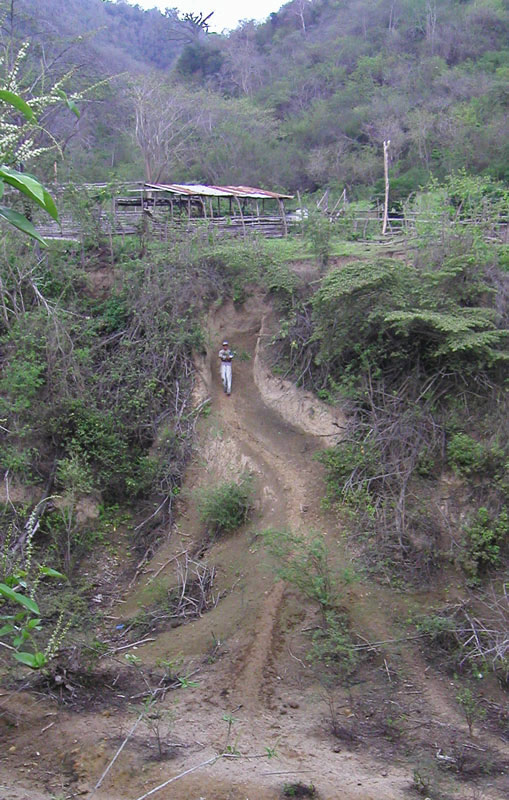

Caroline does her part to move trees to the revegetation site at El Toro.
After a snack we began breaking trail at the site, machete-ing our way through the undergrowth.
And finally we tackled the most rewarding part of the process which is actually putting the trees in the ground. We commenced this year’s planting at Ricardito’s farm.
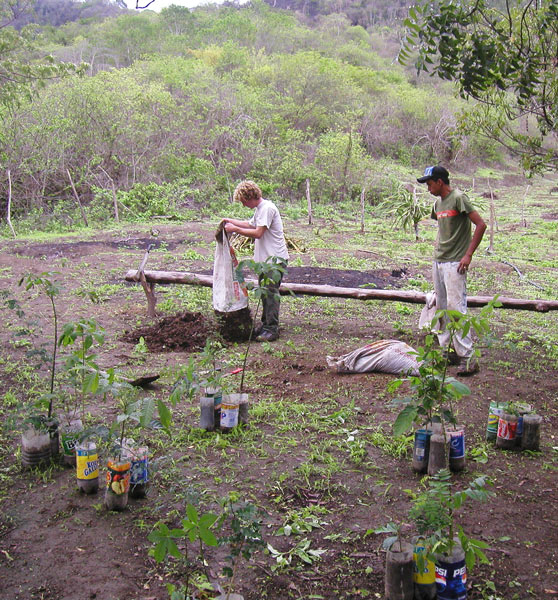
Sam and Jaime mix up compost and Tierramonte, in the foreground trees are organized for planting.

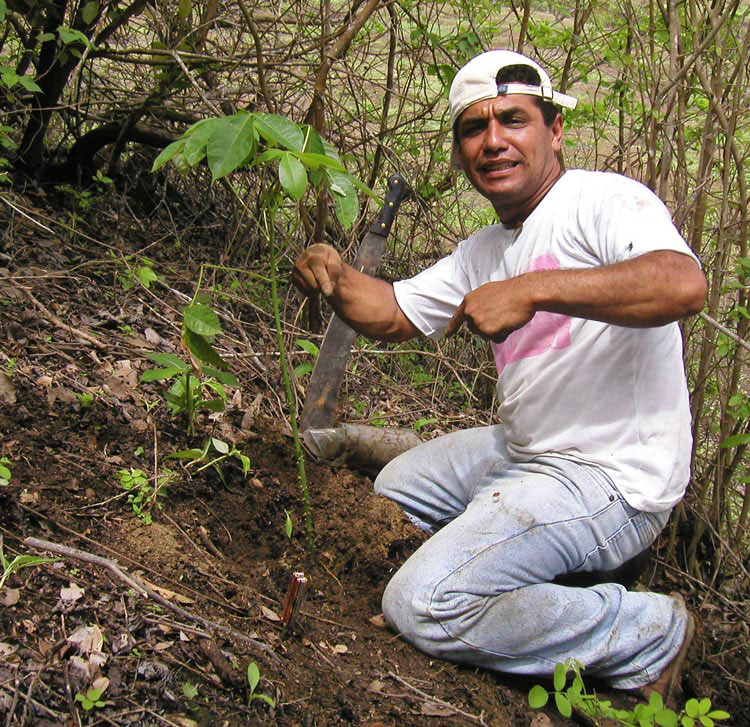
Ramon shows how to plant a Ceibo.
Anita and Ramon joined up with us for the event. Trees were carried to previously prepared holes and planted with a booster of compost.

Your point of view caught my eye and was very interesting. Thanks. I have a question for you.
Thank you for your sharing. I am worried that I lack creative ideas. It is your article that makes me full of hope. Thank you. But, I have a question, can you help me? https://www.binance.info/pt-PT/register?ref=IJFGOAID